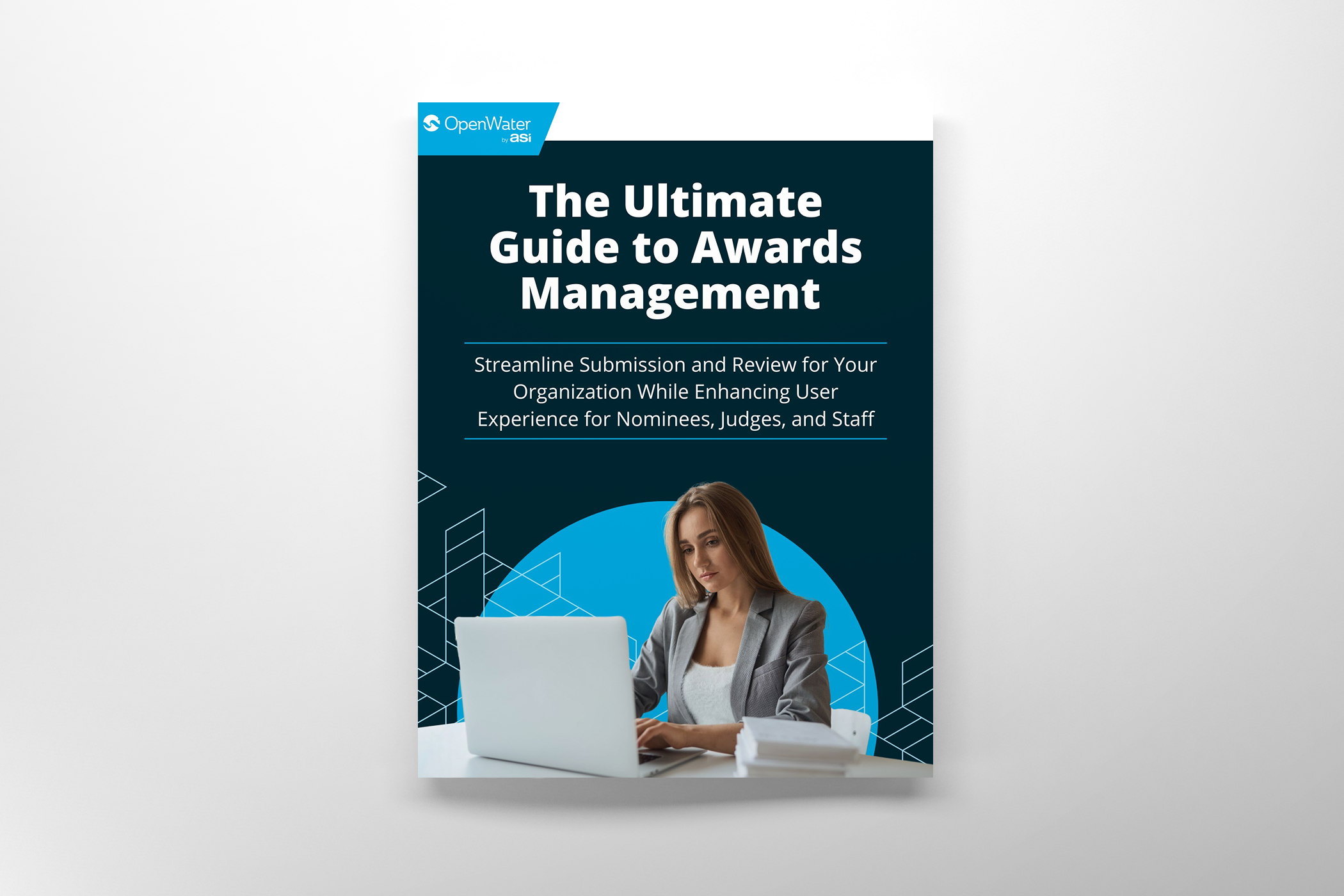
Tips for Recruiting Judges for an Association Awards Program
Many associations are finding it increasingly difficult to find volunteers to serve on committees or help with other projects, like judging awards submissions. Members say they’re too busy. To head off these negative responses, take a proactive approach to judge recruitment.
5 Steps for Recruiting Judges for Your Association’s Awards Program
Before the awards season is around the corner at your association, put this five-step judge recruitment plan in place. Whether it’s your first time managing an awards program or the too-many-to-remember time, this plan will help you persuade busy members and industry leaders to serve as judges for your awards program.
Step 1: Clarify selection criteria for awards judges
With your awards committee or team members, decide what qualifications a person must have to serve as a judge. These qualifications may vary depending on the type of award they’re judging.
Think about verifiable qualifications, such as:
- Years of experience
- Role or position
- Credentials
- Awards
- Accomplishments or competencies related to the award type
Must judges be members? Membership may not be appropriate for some prospective judges.
Document and publicly display the selection criteria on your awards website. Point to it when you need to root out unqualified applicants.
Be careful not to use selection criteria that limits the judging pool. It’s better to get too many applicants and then guide them to a different volunteering opportunity.
If you expect an overwhelming number of awards applications, recruit screeners who determine which ones move forward to the next round. Screeners are often mid-level professionals, while judges are senior-level professionals.
Step 2: Finalize awards judging details
Decide on the start and end dates of the judging period, including any training. Figure out the number of hours each judge can expect to serve. Will this number change if you don’t recruit as many judges as you wish?
Establish policies that ensure a fair judging process, for example, conflict of interest disclosures. Judges must agree to comply with these rules before accepting their assignment.
Analyze trends from the past few years. Estimate the number of awards entries, average number of entries scored per judge, and number of returning judges. Now, you have an idea of the number of judges you need to recruit. Recruit more judges than you need since someone always drops out at the last minute.
Step 3: Identify judge recruitment targets
Put together a list of prospective judges. Cast a wide net beyond the usual suspects to avoid the perception of a “fix” between members who know each other or run in the same circles.
Industry leaders bring prestige to your awards program, but most of them are too busy to attend in-person judging sessions. Consider using an awards management platform so you don’t exclude people who don’t have the time (or budget) to travel.
Include these folks in your recruitment list:
- Past judges
- Past award winners
- Winners of other industry awards
- Industry influencers
- Company executives
- Speakers
- Industry journalists and podcasters
Send a personal invitation from a board or committee member. When someone declines, ask them for a referral. Ask past judges to recommend prospective judges too.
Step 4: Prepare the call for awards judges
Elevating excellence, contributing to the industry, doing a great service—yes, yes, yes, all nice thoughts, but don’t lead with them. Your personal invitations and public calls for judges must focus on one thing:
What’s in it for me?
Focus on the benefits for the judge. Talk about the prestige related to judging—how it enhances their reputation, impresses their peers and boss, and looks good on their LinkedIn profile and resume. Offer to create a press release for them.
If judges work in pairs or groups, play up the opportunity to be part of a team and develop relationships.
But what most judges really value is getting a look at individual or company accomplishments, career journeys, and innovative projects and products. Judges see the latest industry trends, inspiring new ideas, and next practices. Everyone eventually hears about the winning project, but judges also get to learn about the ones that ranked right up there with them and are just as interesting.
Some associations provide judges with continuing education credit they can use when applying for or renewing a certification.
Along with the benefits, be up front about the expected time commitment. But counter that with the convenience and efficiency of the online judging experience. They can do it at any hour they please!
Definitely mention the impact of their volunteering contribution. Yes, now’s the time to talk about elevating the profession and serving their professional community.
Use all marketing channels to promote the benefits of judging:
- Newsletter announcements
- Website
- Online community
- Social media
Step 5: Make next year’s judge recruitment easier
As you know, the awards season isn’t over when the awards gala ends. You close one season by setting yourself up for a successful next season.
First, thank your judges, obviously. If you want to stand out, mail them a handwritten note from a board, committee, or staff member. Or make a call. Consider sending them a VIP invite to a special event or a discount on their next registration or purchase.
Most importantly, send judges a survey to gather their thoughts on how to improve the judging experience and awards program. Include questions like:
- Why did they accept the role?
- What did they enjoy about the experience?
- How did it benefit them?
- How was the workload? Deadline? Instructions and guidelines?
- What did they think of the transparency and fairness of the scoring criteria? Ease of scoring? Number of finalists/winners?
- Any feedback on improving the application, categories, or award types?
- How was your communication with them?
Find out if they’ll consider judging again next year or in the future. Can they recommend someone for next year’s judging panel?
While you’re at it, collect testimonials for next year’s judge recruitment campaign.
Based on their feedback, decide how to improve training, instructions, scoring criteria, communication, or your technology platform. For a peek at how an awards management platform transforms the judging experience, watch our quick tour of OpenWater.
